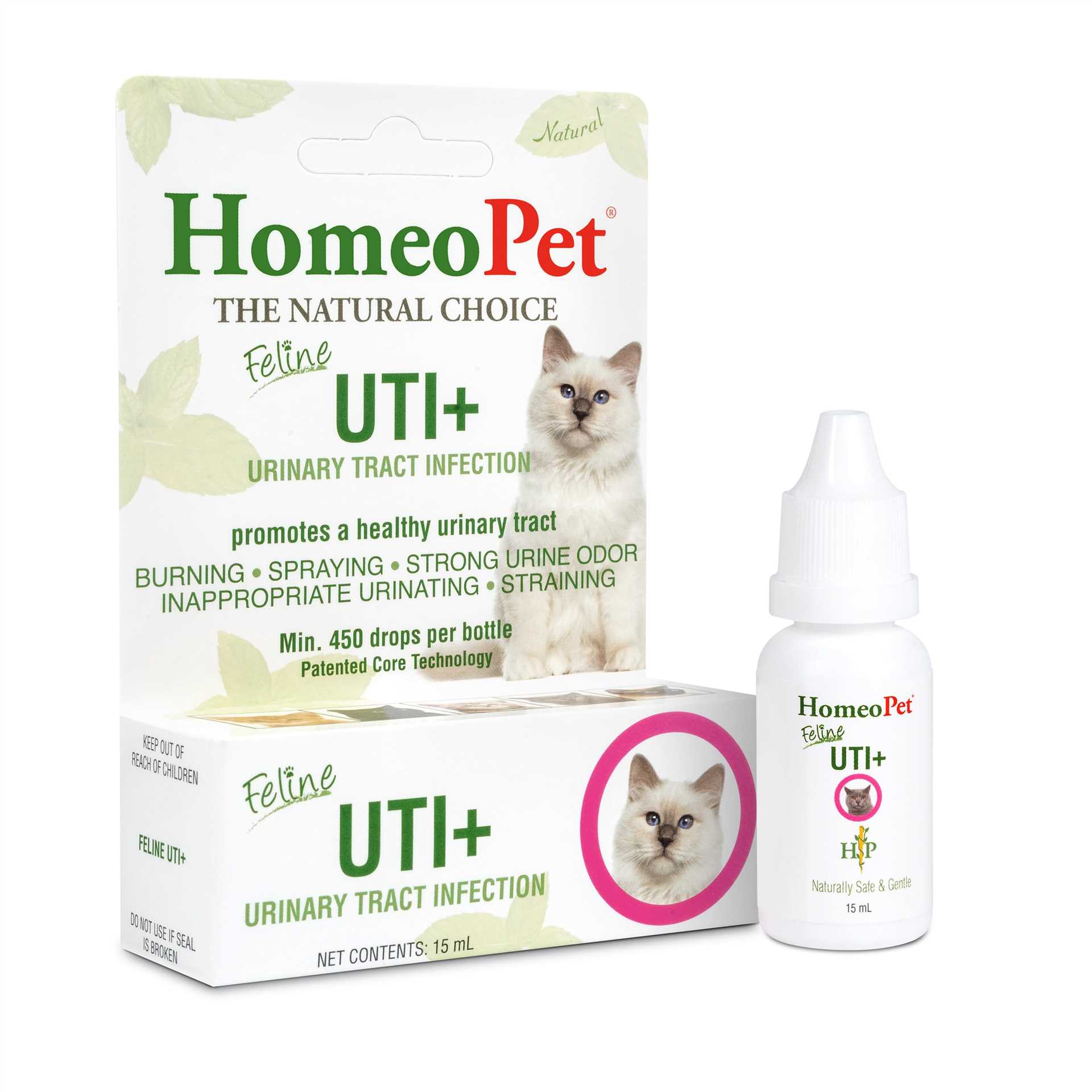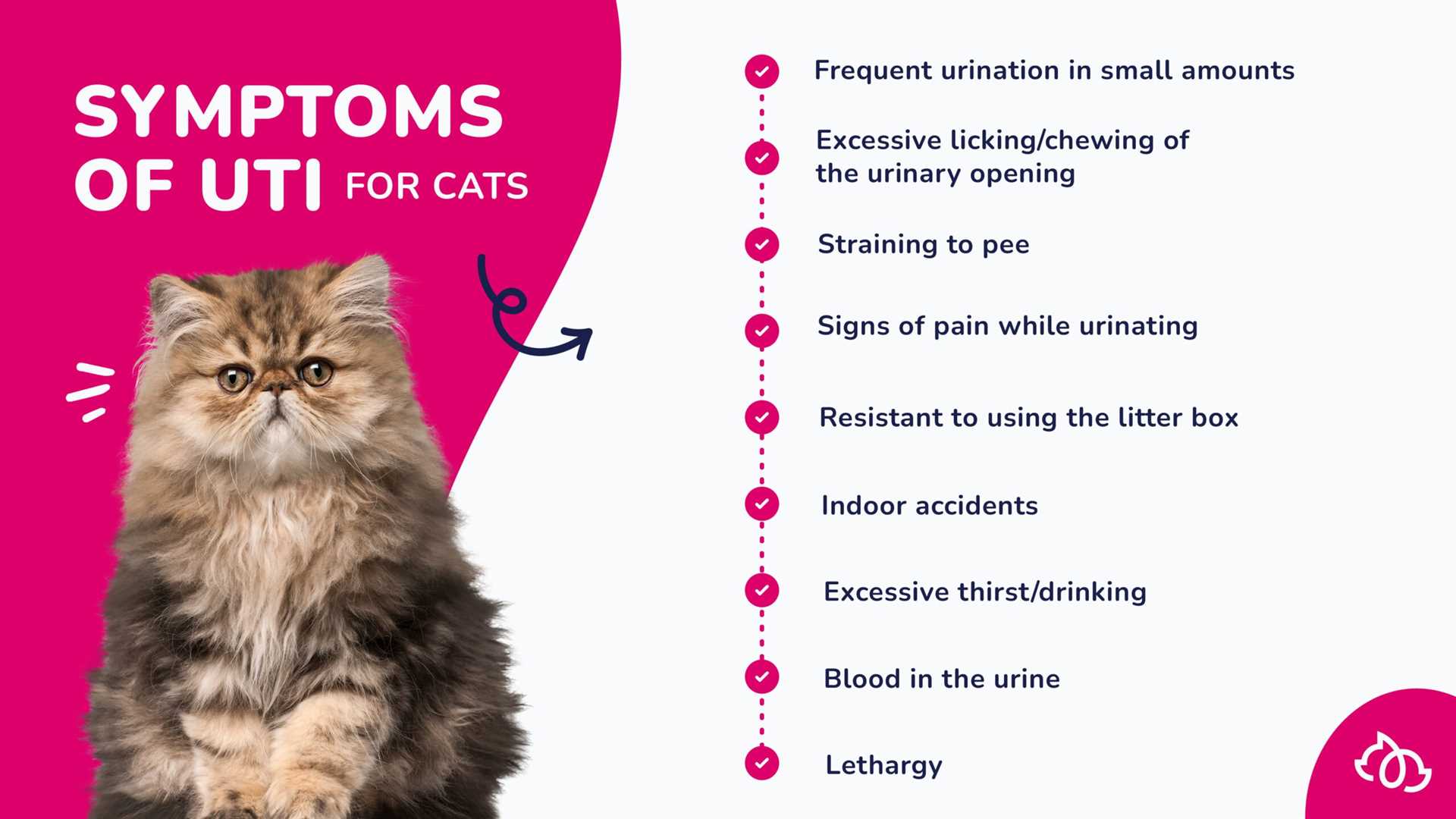



Hydration is key. Providing fresh water at all times encourages increased fluid intake, which can help dilute urine and reduce strain on the bladder. Consider adding a water fountain to make drinking more appealing.
Specialized diets play a significant role in managing discomfort. Look for formulas specifically designed for bladder health. These often contain ingredients that promote urinary tract health and help dissolve crystals.
Supplements can also be beneficial. Ingredients like glucosamine and omega-3 fatty acids support the urinary tract lining and reduce inflammation. Always consult a veterinarian before introducing new products to ensure they are appropriate.
Regular vet check-ups are crucial. Routine examinations can catch potential issues early and adjust treatment plans as needed. If symptoms persist, further diagnostic testing may be necessary to identify underlying causes.
Stress management is often overlooked. Providing a calm environment with safe spaces to retreat can help alleviate anxiety, which may contribute to urinary distress. Engaging in gentle play can also provide an outlet for pent-up energy.
What Can I Offer My Feline for Bladder Issues
Hydration is key. Ensure fresh water is readily available. Wet food can also boost fluid intake, helping to flush out the system. Look for high-quality options that list meat as the first ingredient.
Diet Adjustments
- Prescription diets specifically formulated to support urinary health can be beneficial.
- Consider adding cranberry extract to food or water, known for its potential to maintain bladder health.
- Avoid high-ash foods, as they may contribute to mineral buildup.
Supplements and Natural Remedies

- Omega-3 fatty acids can reduce inflammation and support overall wellness.
- Herbal blends like marshmallow root or slippery elm may soothe irritation.
- Probiotics can help maintain a healthy gut, which might positively influence bladder function.
Regular vet check-ups are crucial to monitor condition and adjust care as needed. Always consult with a vet before introducing new items to the regimen.
Identifying Symptoms of Urinary Issues in Felines
Pay attention if there are changes in litter box habits. Frequent trips without producing much can indicate discomfort. Straining or yowling while attempting to urinate is a clear sign of distress.
Watch for signs of blood in the urine, which can signal a serious condition. Changes in urine color or odor may also suggest underlying health concerns.
Increased drinking or excessive thirst is another warning sign. This might indicate that something is off with the urinary system.
Other symptoms include lethargy, loss of appetite, or hiding. If you notice any combination of these signs, it’s crucial to consult a veterinarian as soon as possible to ensure proper diagnosis and treatment.
| Symptom | Possible Indication |
|---|---|
| Frequent trips to litter box | Possible discomfort or blockage |
| Straining to urinate | Potential urinary obstruction |
| Blood in urine | Serious health issue |
| Increased thirst | Underlying urinary or kidney problems |
| Lethargy | General decline in health |
For some tasty and nutritious food options that might help, check out this how to cook marinated salmon in cast iron skillet.
Recommended Dietary Changes for Urinary Health
Switching to a high-quality, moisture-rich diet is a key adjustment. Canned food contains more water than dry kibble, promoting hydration and supporting kidney function. Look for products specifically designed to aid in maintaining a healthy bladder.
Incorporating Special Formulas
Consider formulas that contain ingredients like cranberries or blueberries. These fruits are known for their ability to help maintain a balanced urinary tract environment. Some brands offer specialized diets tailored to minimize the risk of crystal formation.
Increasing Water Intake
Encouraging hydration is vital. Adding a cat water fountain can stimulate drinking habits. Fresh, flowing water is often more appealing. You might also mix water into dry food to increase liquid consumption.
Hydration Tips to Support Feline Urinary Function

Encouraging increased fluid intake is crucial. Here are some practical tips:
- Provide fresh, clean water daily. Use a bowl made of ceramic or stainless steel, as these materials keep water cooler than plastic.
- Consider a pet water fountain. The moving water attracts attention and often encourages drinking.
- Incorporate wet food into meals. High moisture content in canned options helps maintain hydration levels.
- Mix water or low-sodium broth into dry kibble. Ensure your furry friend consumes a greater volume of liquid during meals.
- Offer ice cubes as a treat. Some enjoy playing with and licking them, which aids in hydration.
Monitoring Fluid Intake

Keep an eye on drinking habits. If there’s a noticeable decrease in fluid consumption, it may indicate discomfort or an underlying issue. Regularly check the water bowl and refill it to maintain freshness.
Additional Hydration Sources
- Consider adding water-rich fruits like watermelon or cucumbers in moderation as a treat.
- Explore hydration supplements formulated to encourage fluid intake, available at pet stores.
- Maintain a consistent routine. Familiarity promotes comfort and encourages drinking.
Medications and Supplements for Urinary Issues
Veterinary-prescribed medications can significantly alleviate discomfort and improve health. Common options include antibiotics for bacterial infections, anti-inflammatory drugs, and medications that relax the bladder. Always follow the vet’s instructions regarding dosage and duration.
Supplements to Consider
Several supplements may support bladder health. Omega-3 fatty acids can help reduce inflammation, while cranberry extract may aid in preventing urinary tract infections. Additionally, glucosamine can contribute to maintaining bladder lining integrity. Consult with a veterinarian before starting any new supplement.
Herbal Remedies
Some herbal options, such as marshmallow root and dandelion leaf, have been used to promote urinary health. These herbs are believed to have soothing properties and may support overall function. Always discuss herbal remedies with a veterinary professional to ensure safety and compatibility with other treatments.
When to Consult a Veterinarian for Feline Urinary Issues
If my litter box habits change suddenly or I show signs of discomfort while using it, a trip to the vet is non-negotiable. Frequent attempts to urinate with little success, blood in the urine, or excessive licking of the genital area are red flags. These symptoms might indicate an underlying condition requiring professional evaluation.
Signs Indicating Urgent Veterinary Attention
Persistent vomiting, loss of appetite, and lethargy can signal serious issues. If I exhibit any combination of these signs along with difficulty urinating, it’s critical to seek help immediately. Delaying a visit could lead to more severe health consequences.
Monitoring Behavior Changes
Changes in my drinking habits, such as increased thirst, should also prompt a consultation. My human should keep a close eye on my behavior and overall well-being. Regular check-ups are beneficial, even without visible issues, to maintain urinary health.
For those looking to create a pleasant environment while dealing with these issues, consider checking out the best air fresheners for cats. A comfortable space can make a significant difference in my mood and recovery process.
Home Remedies and Natural Solutions for Feline Health Issues
Offering a mix of moisture-rich foods can greatly assist in maintaining bladder wellness. Incorporate wet food into the daily meals as it provides hydration and aids in diluting the urine. Consider adding a small amount of water or low-sodium chicken broth to dry kibble as well.
Herbal Options
Certain herbs like cranberry and dandelion leaf can promote a healthy urinary tract. Cranberry may help prevent bacteria from adhering to the bladder wall, while dandelion acts as a diuretic, supporting the flushing of toxins. Always consult a vet before introducing new herbs to ensure safety and appropriateness.
Probiotics
Adding probiotics to the diet can enhance gut health and, in turn, support overall wellness. Look for supplements specifically formulated for felines, as they can aid in balancing the microbiome and may reduce inflammation in the urinary tract.









